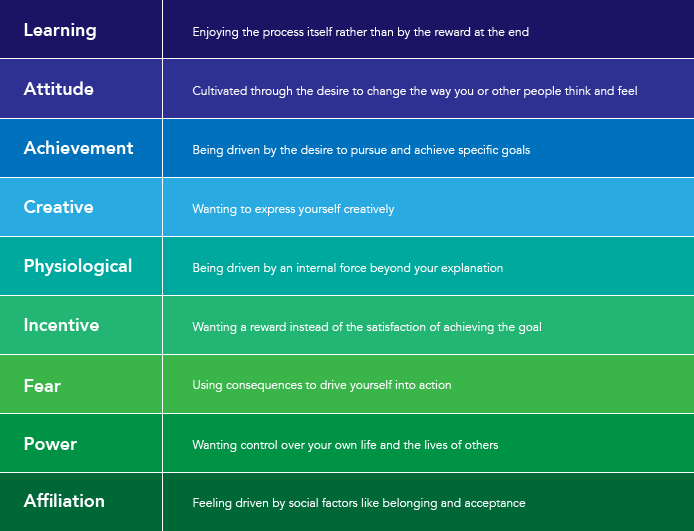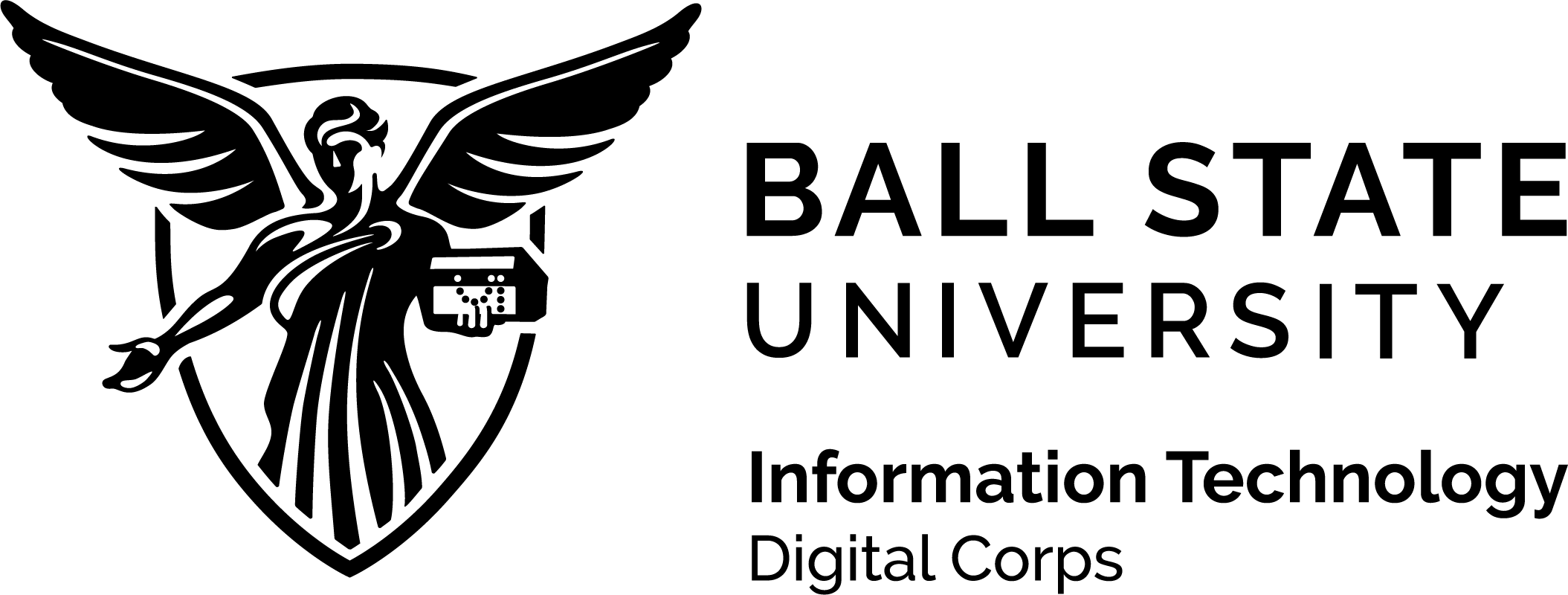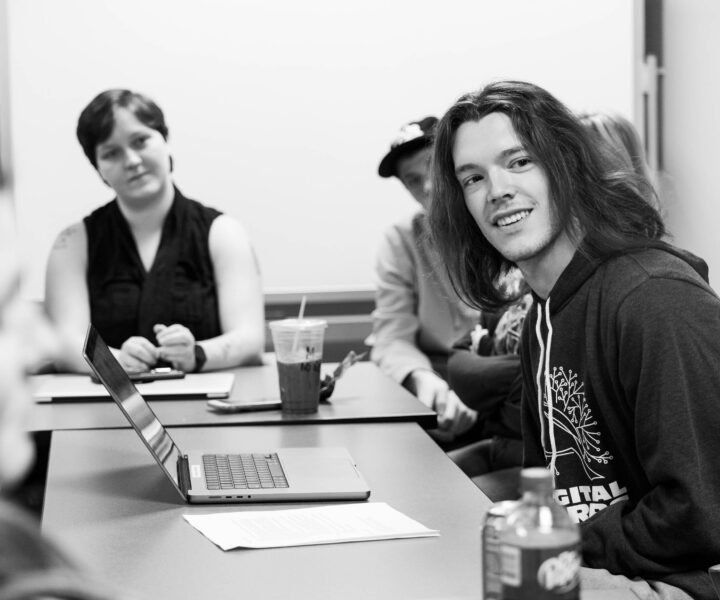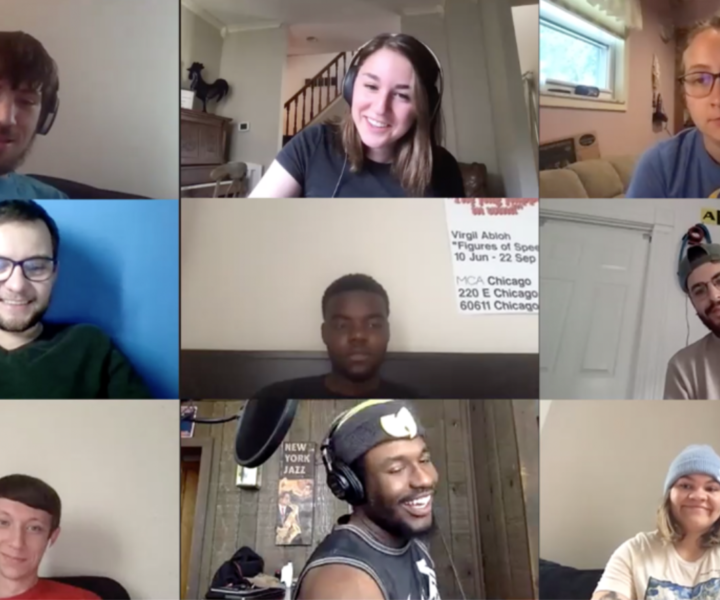Every day, there is at least one factor that influences when and why we decide to buckle down and get work done. Those factors, which we’ll refer to as motivators, define our working personality and help us better understand the people we interact with each day.
Here at the Digital Corps, we are no strangers to the topic of motivation. Recently, we had a Soft Skills discussion based around staying motivated when working from home and discovering our own individual “ticks”. After talking over obstacles to motivation and ways to reignite that spark for work, we left Soft Skills ready to tackle our projects.
Through Soft Skills, we learned that we are all driven by different external and internal forces, which is why it is important to tailor incentives and rewards to individuals in the workplace. Traditionally, workplaces spark motivation within a “stick-and-carrot” approach, where the goal is to motivate employees with a tangible reward. However, introducing rewards can stifle innovation and creativity, and some people are not motivated by the possibility of rewards.
There are two main types of motivation: intrinsic and extrinsic. Intrinsic motivation-types are driven by internal rewards and extrinsic motivation-types are driven by external rewards. According to an article from evantraver.com, there are more granular types of motivation within intrinsic and extrinsic motivation that can help us better understand what motivates individual people.
Workplaces produce more motivated employees when they have a positive environment and seek to understand everyone as an individual. Here at the Digital Corps, our staff take time to get to know each person in the office, welcome all ideas, keep us busy, and encourage us to work together to solve problems and be creative.
Additionally, the Digital Corps provides opportunities that encourage us to uplift each other. Yay! Cards, which are digital ways to congratulate someone on an accomplishment or simply tell them why they are appreciated, are integrated with the office’s Slack, making it easy to send someone a positive message. The Corps Slack also allows people to send digital comforts and request pick-me-ups if they’re feeling overwhelmed or unmotivated. Little things like these make a big difference when it comes to motivating employees.
Since motivation is deeper than just intrinsic and extrinsic, it is important to understand the other nine types of motivation: learning, attitude, achievement, creative, physiological, incentive, fear, power, and affiliation.

Everyone at the Digital Corps is influenced by different motivators. A few students took the time to explain what motivates them when they work and why, along with which motivator best describes their way of being.

Dan Chepkwony, Development Team
Motivator: Physiological
“I’m motivated by a sense of purpose. I’ve found that when I clear my mind and focus on what I genuinely want, I find myself completing tasks without exerting that much effort. I stay motivated by meditating and making sure my mind stays clear.”
Chepkwony isn’t the only one who is motivated by a sometimes-unexplainable force or a greater sense of being. Digital Corps students like Chepkwony can be found with their heads down, focused, and getting work done.

Connor Sanburn, Project Management Team
Motivator: Physiological
“I think that the future motivates me. In whatever I do, I’m trying to figure out how it can propel me further. If I want a certain career or lifestyle in the future, then I’m working my tail off now to prepare myself for it. Doing career exploration, taking strengths quizzes, and working for employers who have helped me with my professional development helped me discover what motivates me. Having a busy schedule doesn’t really leave time for procrastination, so I think filling my time is a great way for me to stay motivated. I also keep an extensive reminders list, to which I make myself complete all the tasks assigned for that day before doing what I really want to do.”
Physiological motivation can take its shape in different ways. For students like Sanburn, it stems from wanting to follow a certain future path through planning and preparation.

Kip Sprout, User Experience Team
Motivator: Physiological
“My future motivates me. Everything I’ve done in my life has built on itself, and looking back and seeing how I’ve grown motivates me to grow more so I can have the most successful future I can. Sometime around middle school I realized that music was a huge passion of mine, and I used the dream of working in the music industry as a motivator, but now that I’m a bit older I realize that it wasn’t necessarily music that motivates me, but the hopes of having the future I want to have that motivates me. I look at how successful people operate, and I try to take note of the hard work they do. I use this as a reminder that if I want to be successful, I have to work hard.”
Like Sanburn, Sprout wants to achieve a desired future based on his passions. By working hard now and thinking about the success he will experience later, Sprout is using physiological motivation to reach his goals.

Tessa McKenny, Design Team
Motivator: Achievement
“I am highly motivated by deadlines; they give me a sense of urgency and responsibility to complete the task at hand. I discovered I was deadline-oriented in high school when I worked on the school news magazine. I had to meet tight, cyclical news deadlines that helped me stay on track. I stay motivated by trying to get plenty of rest and relaxation outside of work. I know I do better work when I am well-rested!”
When working for an agency like the Digital Corps, there is always something that needs to be completed. For students like McKenny, checking boxes off a to-do list is the only motivation they need to get work done.

Evan Manning, Video Team
Motivator: Creativity
“I think what motivates me is having work that challenges my skill. Doing something I have to learn how to do keeps me moving! I found out that with the Corps Social Media project. When working on projects that interest me and setting goals that I know are challenging, I find myself looking forward to the final product. I stay motivated by surrounding myself with things I love around my desk, listen to new music, and staying creative. Seeing things I create helps me grow from those and better myself.”
Another motivator sprinkled throughout the Digital Corps may be an obvious one: creativity. Manning prides himself on his creative abilities and learning new skills, and it shows through the work he produces each day.

Amelia Cisna, Communication Team
Motivator: Affiliation
“I am motivated by my passion for the work I do and the people I’m doing it with. I have always loved writing and working at the Corps has given me a controlled outlet where I can expand upon my skills. It’s also easier to stay motivated when I’m surrounded by people who have the same passion for the work they’re doing as I am; it truly makes me feel like I’m part of a team. When I started on projects here, I realized that I was creating things that would truly impact other people, either in the Corps or for external clients. That made it easier for me to stay motivated because I felt my work was both important and appreciated. I stay motivated by reminding myself that I’m part of a team. I’ve worked for other media outlets, and while my work contributed to something bigger, most of our work was done independently. Here at the Corps, we emphasize working as a team, and I know my work will directly affect another person’s role on a project. That motivates me to do my best in everything I do here.”
In a highly energetic and collaborative environment like the Digital Corps, comradery is never in short supply. By surrounding herself with people who have similar goals and passions as her, Cisna can put that same energy into her own work.
The few responses from different Digital Corps students show how important it is to understand everyone’s individual motivators. This kind of individual understanding helps develop what kind of incentives can be used as rewards for hard work. There are many types of incentives that can help individuals succeed based on their motivators.
For example, someone motivated by achievement might appreciate checking off a box on a to-do list or be congratulated for making a deadline. Someone motivated by creativity might appreciate praise for their unique visual contribution on a project.
With a better understanding of all 11 types of motivation, it will be easier to use multiple motivators to achieve the highest level of motivation or better group individuals together on projects that require different motivators.
Motivating yourself can be hard. Especially in these trying times, it can be hard to push onward when you don’t feel like it. However, being aware of what motivates you can help you dig yourself out of the mud and keep going.
When you take the time to sit down and figure out which motivators most resonate with you and how you can use them to increase your individual motivation, you distinguish yourself as a high-achieving professional. Tapping into the power of different motivators will improve your self-motivation, which is arguably one of the hardest skills to learn and one of the most critical for your success.



